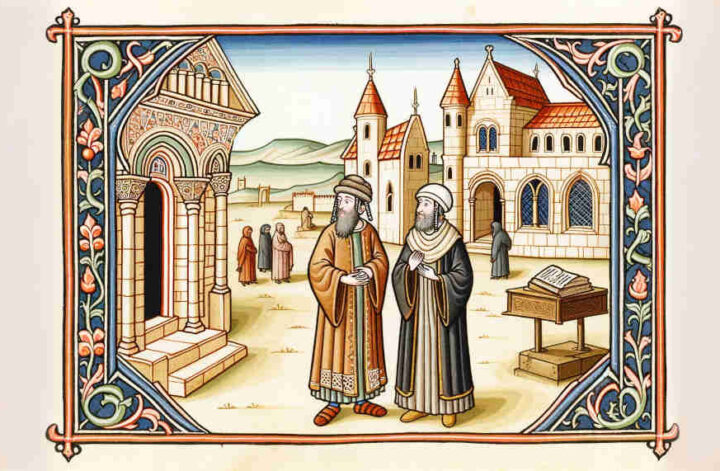Email from Nathan Goldberg:
Dear Rabbi Joshua,
I recently read a statement that has left me quite upset. It claims, “If a Jew has a non-Jewish servant or maid who dies, one should not express sympathy to the Jew. You should tell the Jew: ‘God will replace ‘your loss’, just as if one of his oxen or asses had died’.” This is said to be from Jore Dea 377, 1. Is this really in the Talmud?
Sincerely,
Nathan Goldberg
Clarifying the Context of Jore Dea 377, 1
Dear Nathan,
Your concern about this statement is understandable, and it’s important to seek clarity and truth. Let’s look closely at the source and context of this quote.
About the Source: Jore Dea (Yoreh De’ah) is a section of the Shulchan Aruch, not the Talmud. The Shulchan Aruch is a code of Jewish law compiled in the 16th century by Rabbi Joseph Caro. It covers a wide range of Jewish legal practices, including dietary laws, ritual purity, and ethical guidelines.
Context of Jore Dea 377, 1: The specific section, Yoreh De’ah 377, deals with the laws of mourning and bereavement. However, the statement you mentioned does not accurately represent the content or spirit of Yoreh De’ah 377, 1. Jewish law and ethics emphasize compassion and empathy towards all individuals, regardless of their background or faith. The concept of showing respect and sympathy for the loss of any human life is a fundamental aspect of Jewish teachings.
Jewish Teachings on Compassion: Judaism places a high value on human life and dignity. The idea that a human being could be equated to an animal in their death is contrary to Jewish values. The Talmud and later Jewish writings advocate for kindness and empathy towards all, including non-Jews and servants.
Addressing Misinformation: It’s important to approach such claims critically, especially when they seem to contradict the fundamental principles of Jewish ethics. Misinterpretations or misquotations can lead to misunderstandings of Jewish law and its humanitarian values.
In conclusion, Nathan, the statement you have read is not a reflection of the teachings of Yoreh De’ah 377, 1, or Jewish values more broadly. Jewish tradition teaches respect and sympathy for the loss of all human life. Your pursuit of the truth in this matter is commendable, and I hope this response brings you reassurance and clarity.
With blessings and in pursuit of understanding,
Rabbi Joshua



